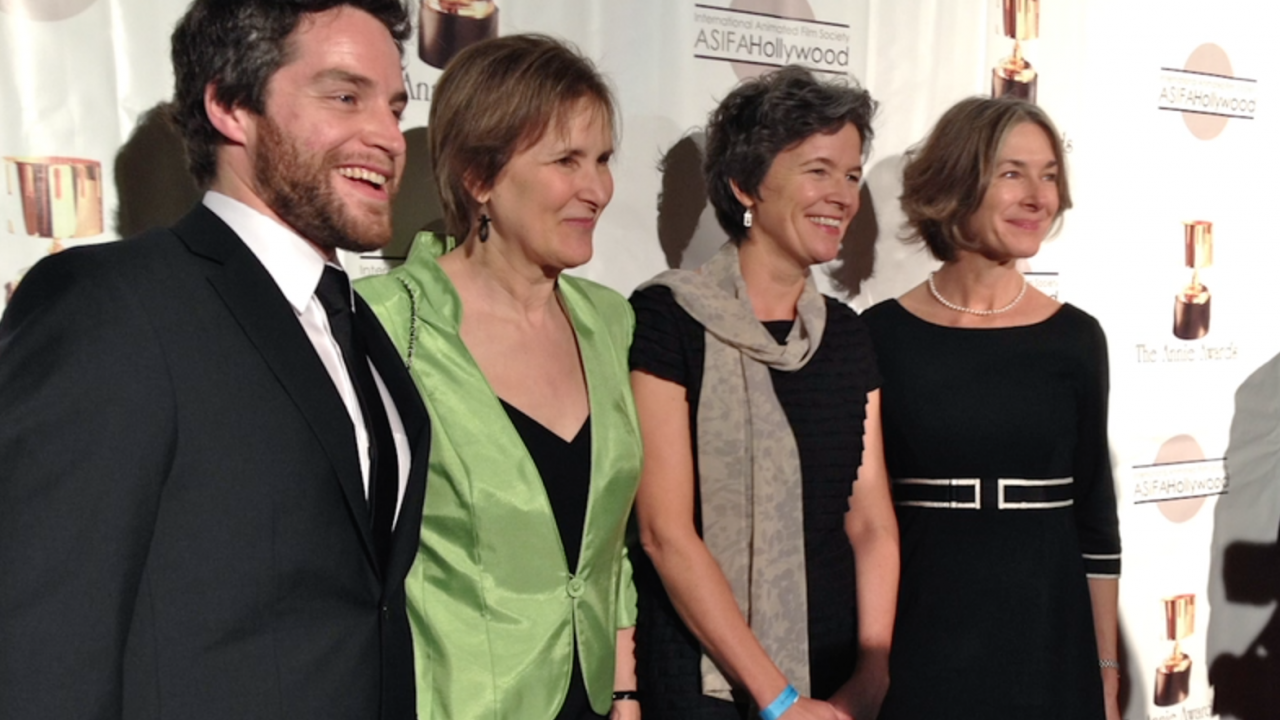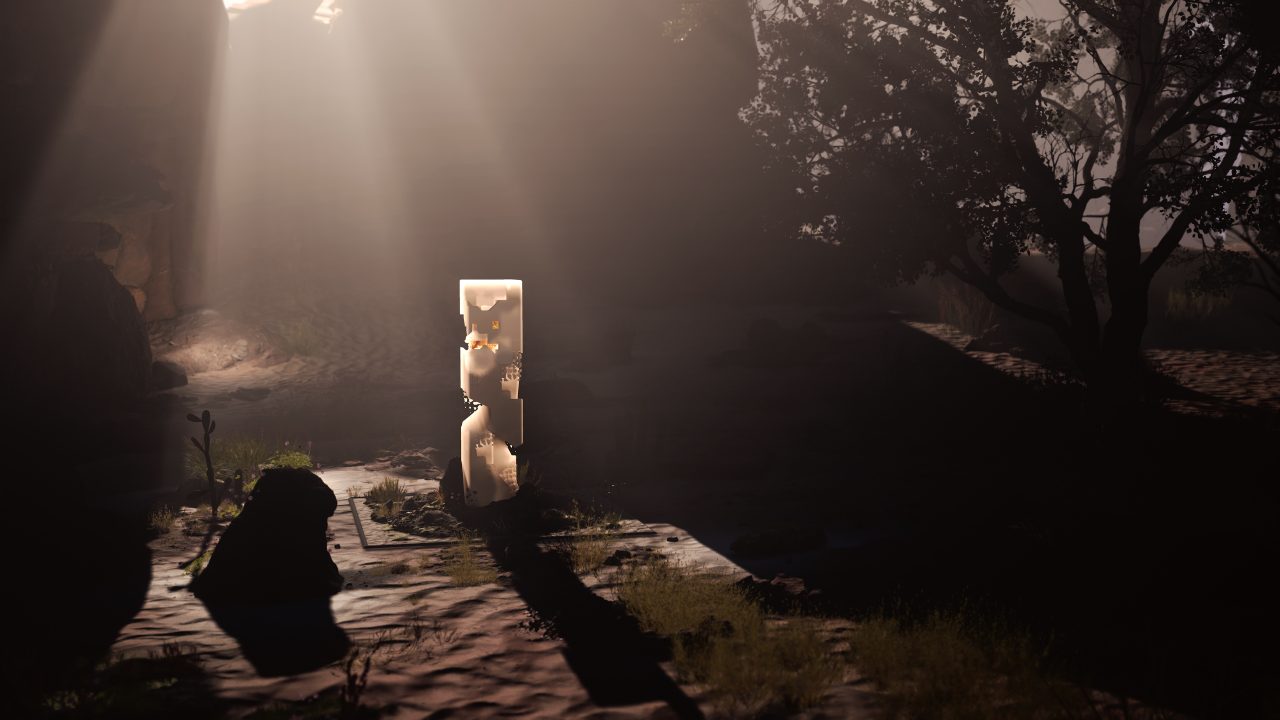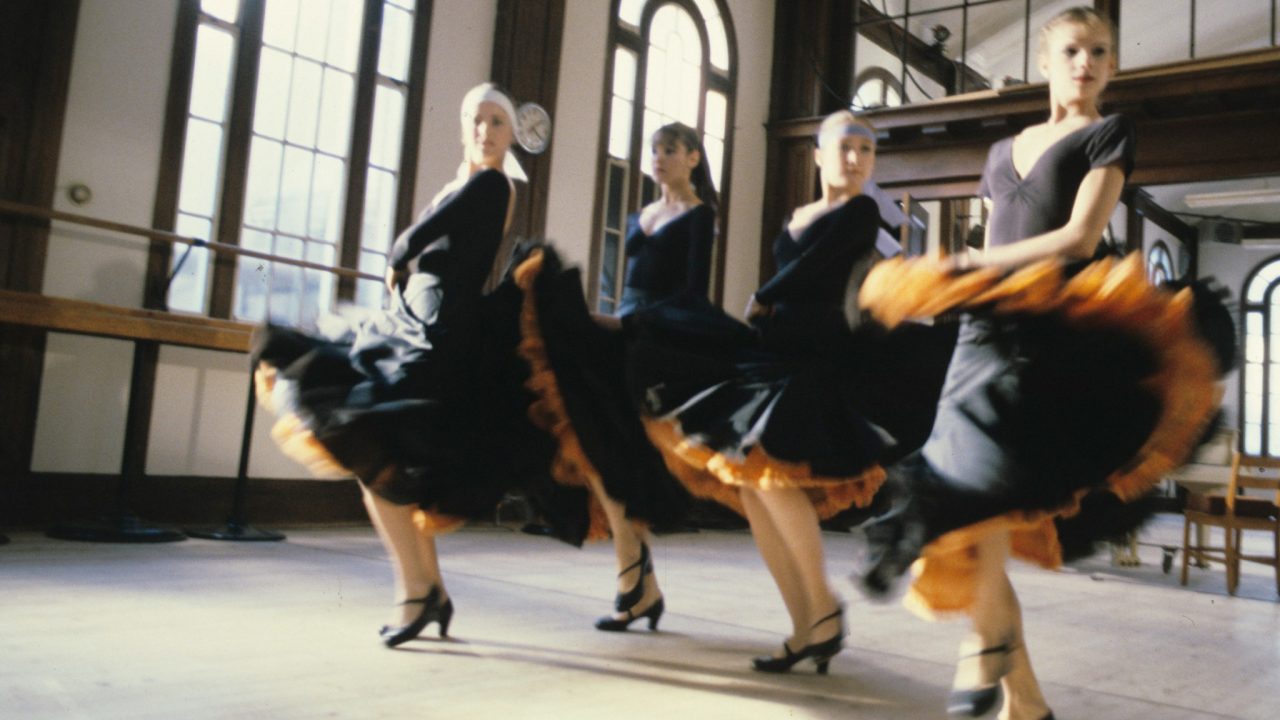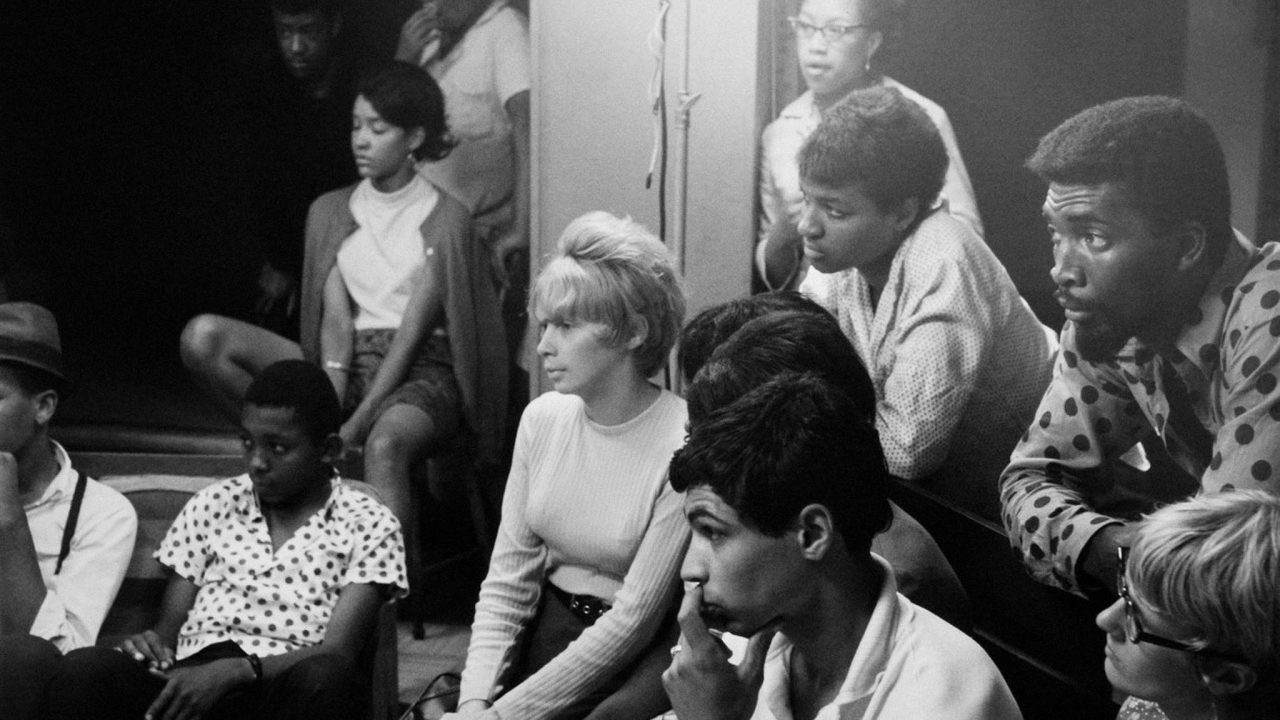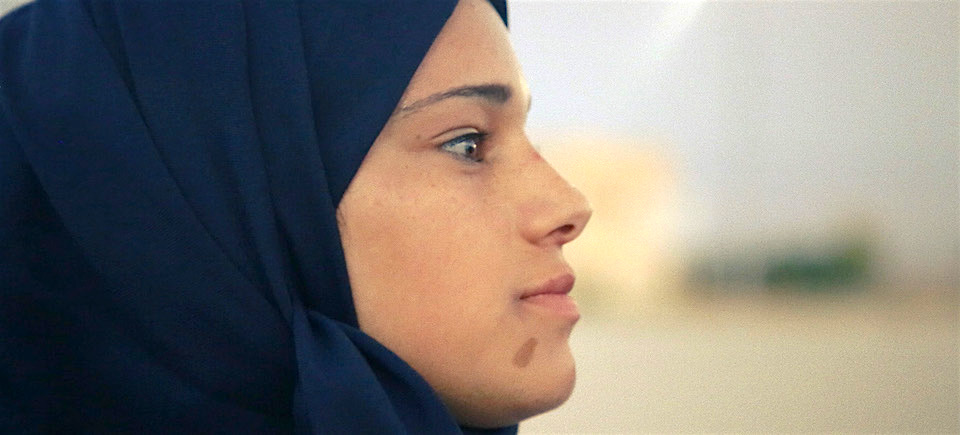
What Walaa Wants
What Walaa Wants
Boot camp was never going be easy for Walaa. Seething with rebel attitude and not inclined to be a team player, she was hardly cut out for military discipline and rigour. But as an athletic teen, a tomboy in a hijab who’s always been more at ease on the back of a horse than behind a desk, she’s decided that she wants to be a cop — and she’s set her sights on a career with the Palestinian Security Forces.
“You know I’m going crack that attitude of yours,” warns one of her trainers.
“Yeah, we’ll see,” she shoots back.
Her story is brought to the screen in What Walaa Wants, an intensely observed work of vérité cinema from documentarian Christy Garland that gets its world premiere at the upcoming Berlinale.
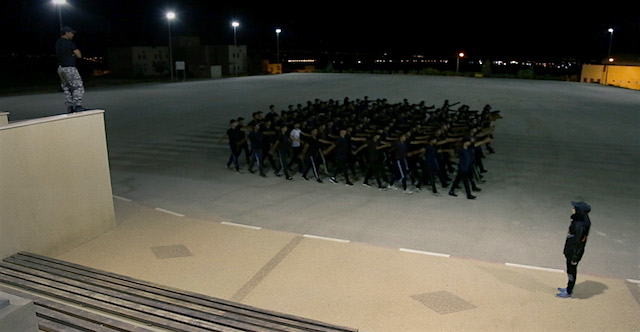
Shot over six years — with the action moving between Walaa’s home in Balata, the largest refugee camp on the West Bank, and the PSF training centre in Jericho — the feature-length doc is a three-way international co-production between Denmark’s Final Cut for Real, whose credits include Joshua Oppenheimer’s Oscar-nominated doc The Act of Killing, Garland’s own company Murmur Media and the National Film Board of Canada.
NFB producer Justine Pimlott first heard about Walaa in 2015, when Garland and Anne Köhncke, producer with Final Cut for Real, presented the project at the IDFA pitch session in Amsterdam.
“A coming-of-age story with extraordinarily high stakes”
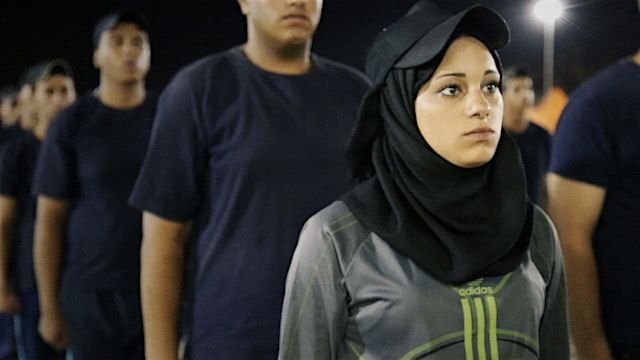
“I was immediately taken with their pitch and with Walaa as a subject,” says Pimlott. “It has elements of a classic coming-of-age story, reminding us of teenage girls that we know — or once were ourselves — but the stakes are so extraordinarily high here because of where Walaa lives and the challenges she faces. I’d seen Christy’s previous work and been looking for an opportunity to work with her, so I reached out to them.”
Garland had met Walaa Tanji three years earlier while working with Game Girl Workshop – an educational program established by Danish artists Andrea Hasselager and Nevin Erönde with a view to offering digital storytelling workshops to girls and young women in various communities across the West Bank.
“Ultimately we told the story together”
“During the last few days, we were working in Balata, and that’s when I spotted Walaa,” says Garland, pictured below. “She had a very strong personality – funny, clever, outspoken – but she also caused a bit of ruckus and I wondered how she would channel all that restless energy and what she was hoping for in life.”
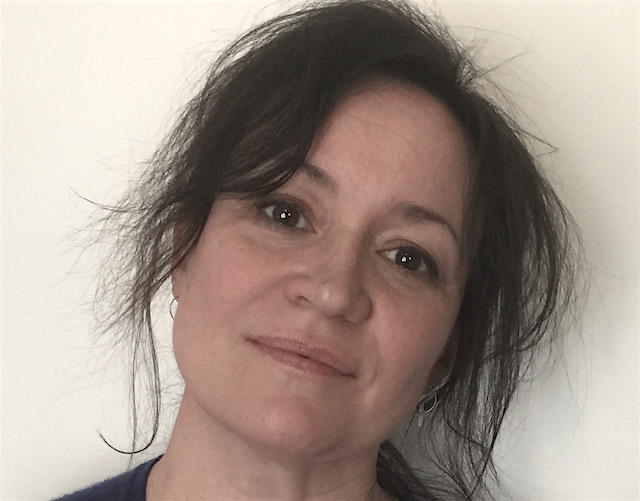
Having won acclaim for unusual character-driven docs like The Bastard Sings the Sweetest Song and Cheer Up, Garland found herself drawn to the young trouble-maker and contacted Walaa and her mother, who’d only recently been released from a long prison term. “I told them I was interested in them and their story, and I told them a lot about myself. They were cautiously open to the idea of the film, and it started there.”
“The whole long process has not always been easy on Walaa, having my camera in her face, documenting her ups and downs, capturing her difficulties during police training, her fear of not measuring up, all that,” says Garland. “But she has put so much into the project — courage and generosity, patience and hard work — and ultimately we told the story together. Building trust was gradual, but it’s resulted a very special relationship that I think has changed us both.”
“The moment of reckoning always comes when I show the film to the subjects who’ve opened their lives to me and my camera,” says Garland, “and it was an enormous relief when Walaa and her family saw the final film. They loved it, and noted how the politics of the region seem to be anchored entirely in their personal experiences.”
As a director who prefers working inconspicuously, handling her own camera and sound, Garland was able to gain relatively easy access into the family sphere but encountered challenges when shooting exteriors. “We’re grateful that the Palestinian Security Forces were so supportive of my efforts to highlight a young female cadet in their ranks. But it was hard shooting outdoors in Balata. They’ve had lots of Westerners wandering through with cameras over the past 60 years — and I didn’t want the film to have any kind of negative impact on Walaa’s family. For some final B roll cinematography, we worked with Hanna Abu Saada, a talented Palestinian cameraman. It was easier for him, for obvious reasons, and he got some beautiful shots of Balata, including the floating OSMO shot at the beginning that walks us through the camp.
“This would not have been possible without Ekram Zubaydi”
Throughout the process Garland relied closely on cultural guidance and practical support from Ekram Zubaydi, pictured below, who played a vital role on the production, taking time off her work as project coordinator with the Palestinian Center for Peace and Democracy.
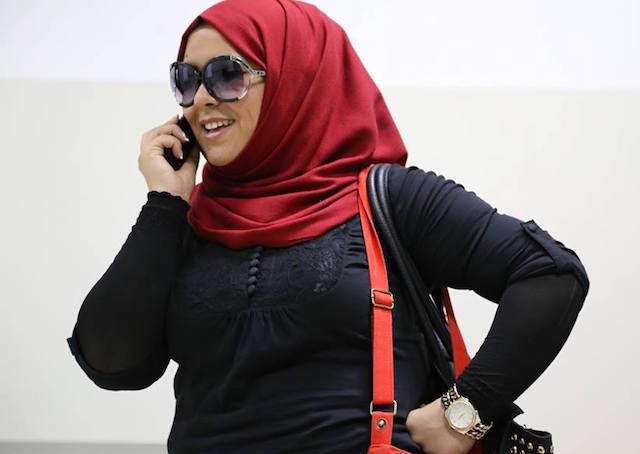
“Ekram became an essential link to Walaa and her family, and the film would not have been possible without her,” says Garland. “I don’t speak Arabic and they don’t speak English, and over the years we all grew close. Walaa’s family trusted me because they trusted her. And she’s deeply knowledgeable about the complicated situation in the Palestinian Territories. She’s a natural leader — an activist and feminist who’s committed to peaceful resistance – and in that sense the film became an extension of her other work.”
The complex context and back-story was part of the appeal for Anne Köhncke, producing for Final Cut for Real. “The film gives us a unique opportunity to tell a crucial story from inside a conflict that seems to be never-ending,” she says. “In a region with one of the youngest populations in the Middle East, Walaa’s perspective is just as important as any expert opinion, even more so I would argue. Her story connects to the teenager in me. She tells me something about becoming an adult amid this conflict, while her resilience and heart give me a kind of hope.”
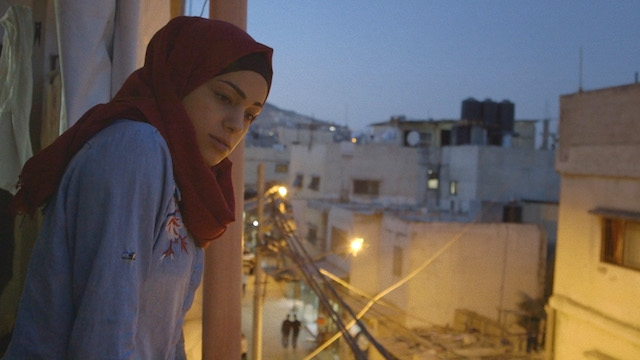
Editing began in Toronto, where Graeme Ring completed the rough assembly, before moving to Copenhagen where Michael Aaglund finished the edit. “Finding the structure can be hard,” says Garland, “but Michael has an exacting dramaturgical approach, with a sharp instinct for story, and his decisiveness helped me get through those tough moments, when I needed to part with stuff that I loved that didn’t really carry it’s narrative weight.”
Christy Garland’s 2012 hit doc The Bastard Sings the Sweetest Song, which screened at Hot Docs and the Sheffield Doc/Fest, has been compared to the work of Bresson and the Dardenne brothers. Liam Lacey, writing in the Globe and Mail, hailed it as “unclassifiable: a documentary as allegory, but mostly a record of a love story between a filmmaker and her subjects, struggling with the cages of intimacy and cruelty that shape their lives.” Her most recent work, the Finnish/Canadian co-production Cheer Up, premiered at Hot Docs and DOC NYC in 2016.
Nominated for ‘Glashütte Original’ Best Documentary Award
What Walaa Wants has been nominated for the Berlin Festival’s newly established Glashütte Original Award, which goes to the best documentary at this year’s festival. A three-member jury selects the winner from 18 nominees and a cash prize, endowed by Glashütte Original watch company, is divided between the film’s director and producers. The film gets its debut screening on February 17.
Walaa is one of two NFB releases getting a world premiere at the Berlinale. With his own feature doc First Stripes, Jean-François Caissy explores similar themes as Garland, documenting the experience of young men and women undergoing military training within the Canadian Armed Forces. And a pair of acclaimed NFB shorts make their European debuts at the festival: Asinnajaq’s gorgeously crafted archive-based film Three Thousand, and Oscar winner Torill Kove’s latest animation Threads. For information on all Berlin screenings, visit www.berlinale.de
What Walaa Wants is directed by Christy Garland, and is a coproduction between Murmur Media (Matt Code and Christy Garland, producers); Final Cut for Real (Anne Köhncke, producer); and the National Film Board of Canada (Justine Pimlott, producer). Photography by Christy Garland.
-
Pingback: Happy trails. Films reviewed: Ghost Town Anthology, Red Rover, The Hummingbird Project |
